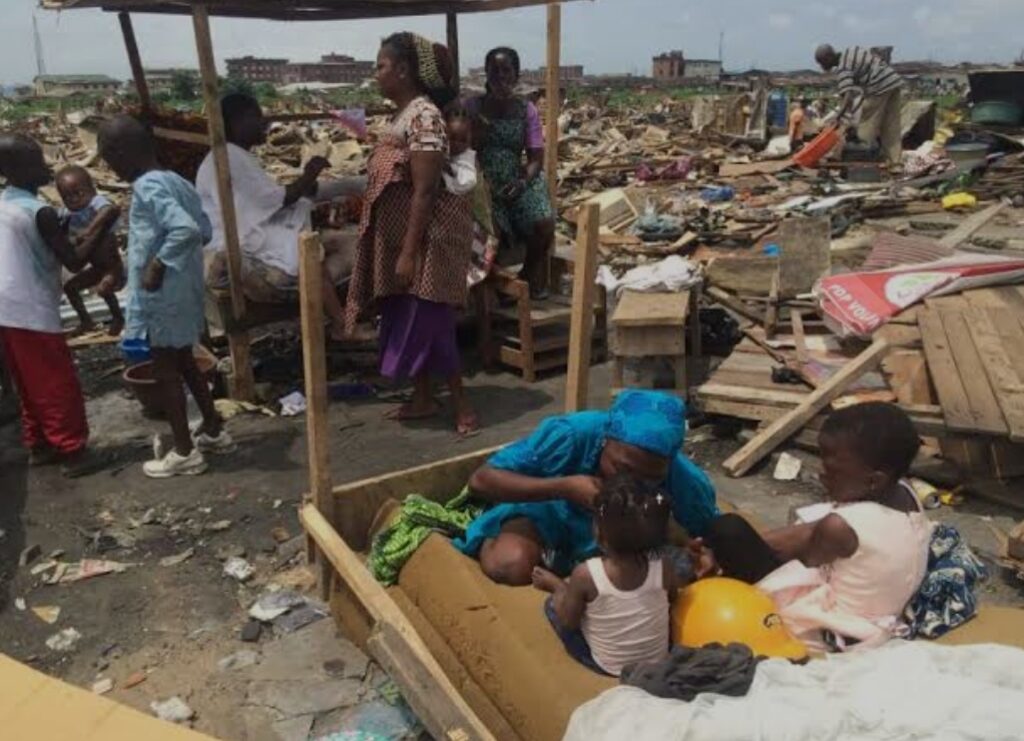

The recent spate of house demolitions in Abuja is yet another reminder of how the Nigerian state has increasingly marginalized the poor and ignored their plight. These demolitions, often carried out with little to no warning and without any recourse for relocation or resettlement, expose the brutal reality: Nigeria, particularly under the current administration, has created no room for its less privileged citizens.
As families find themselves suddenly homeless, they join the swelling ranks of Nigerians who sleep on streets, under bridges, and in makeshift shelters across the nation’s capital. Ironically, the homes that are rebuilt on the demolished land are often left empty, not due to a lack of demand but because they are priced far beyond the reach of most Abuja residents. These luxury properties, symbols of power and wealth, remain vacant, frozen monuments to a system where the poor are denied decent housing in their own country.
One cannot ignore the bitter truth underlying this housing crisis: much of the wealth that fuels Abuja’s high-end developments comes from the exploitation of resources meant to benefit all Nigerians. Over decades, a small group of elites has amassed fortunes from public funds and resources that should be channeled into uplifting the poor. These elites are the very people who commission luxury apartments and gated communities that will remain uninhabited, perpetuating a cycle where the nation’s most impoverished are made even poorer.
In an era where leadership could strive to bridge these social and economic divides, the current administration appears to be complicit in widening them. The wealthy few in Nigeria, with the support of this government, seem to treat the poor as a burden to be rid of. President Tinubu’s government, which could champion housing and social welfare for the vulnerable, has chosen policies that align with an elite mentality that sees the poor as nuisances, unwelcome because they are poor, “dirty,” and struggling to survive in an economy that works against them.
Adding insult to injury, the recent demolitions also seem politically charged. Many residents who have lost their homes are supporters of opposition parties, perceived as challenging the power and dominance of the ruling All Progressives Congress (APC). Abuja residents, many of whom opposed the ruling party, are now paying a heavy price, left vulnerable under the authority of a minister who has long profited from government dealings. This minister’s apparent belief that poverty is a “crime” has now translated into policy, a policy that punishes the poor simply for existing.
But the hardship felt by Abuja’s poor is not unique to the capital. Across Nigeria, the masses bear the brunt of policies that strip away their right to a dignified life. Those in power benefit from the suffering of the poor, using the wealth of the nation to enrich themselves while blaming the poor for being “a burden” to the country. It’s a vicious cycle, perpetuated by the very leaders many Nigerians once trusted.
There is a pressing need to raise public awareness of this injustice. The demolitions in Abuja should serve as a rallying cry for every Nigerian who seeks a fairer, more equitable nation. Every Nigerian deserves a government that sees the poor not as burdens but as citizens deserving of respect and support.
Today, more than ever, Nigerians must come together to demand accountability and fairness from those in power. It’s time to challenge the system that has consistently betrayed its own people and remind leaders that a nation built on justice and equity is a nation built to last.

